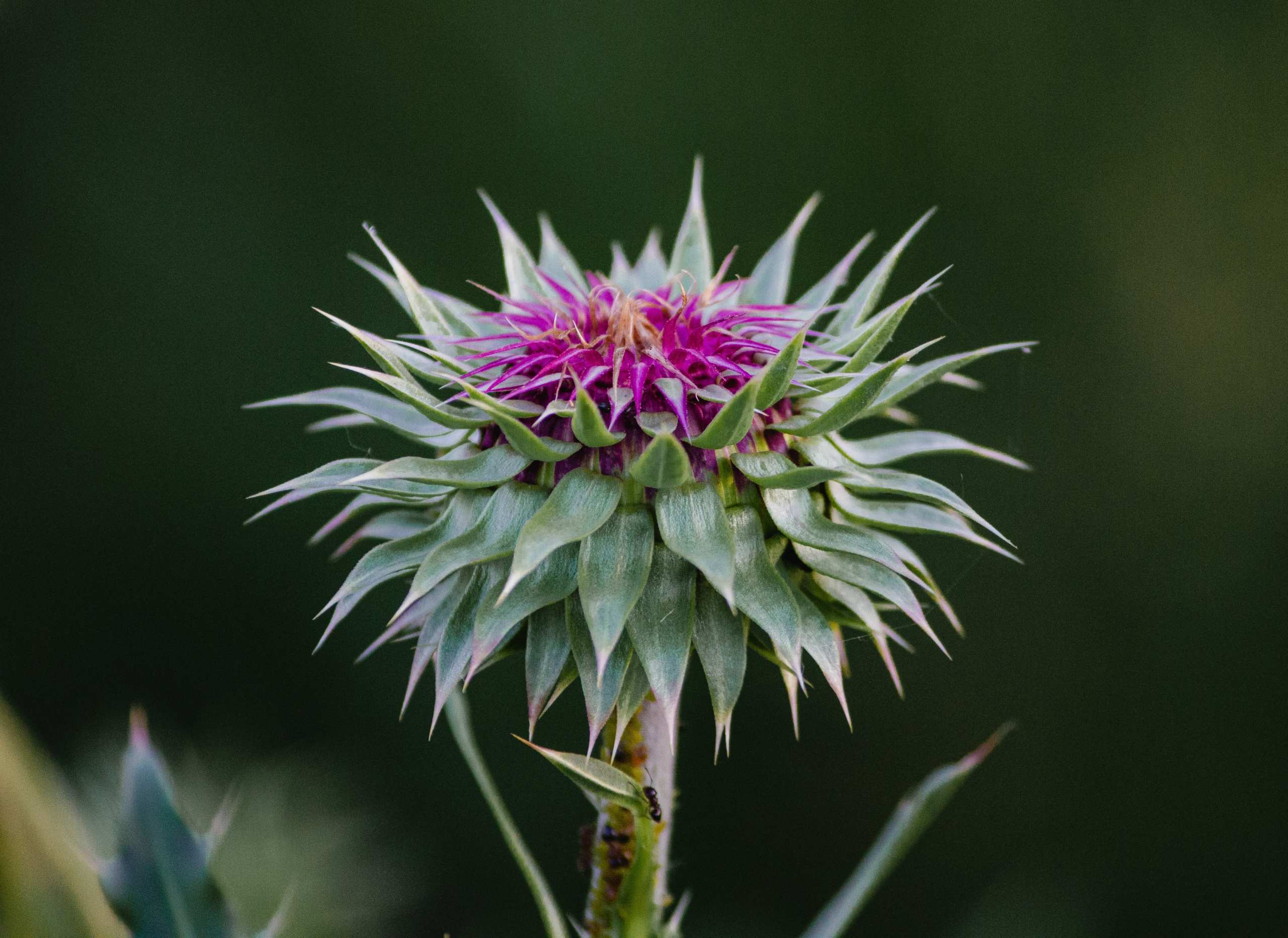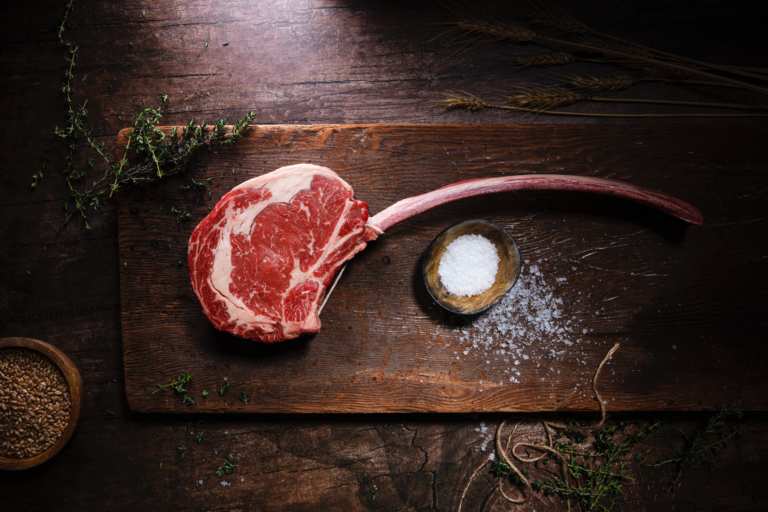Milk thistle, also known as Silybum marianum, is a flowering plant that has been used for centuries for its medicinal properties. The plant is native to the Mediterranean region but is now widely grown and used throughout the world.
The active compound in milk thistle is silymarin, which is a complex of flavonolignans (known for antioxidant and anti-inflammatory properties) and polyphenolic compounds (for example, resveratrol, which has been in the news lately for combating aging). They are also believed to have protective effects on the liver, as well as potential benefits for cardiovascular and metabolic health, proving effective for weight loss.
Studies continue to demonstrate the potential benefits of milk thistle in treating various health conditions including organ maintenance, insulin control, and gastrointestinal function.
Liver Health
Milk thistle is commonly used as a liver tonic and has been shown to have hepatoprotective effects. Studies have found that silymarin can help protect the liver from toxins, such as alcohol and environmental pollutants, and can help reduce liver damage caused by various drugs. Additionally, milk thistle has been shown to have anti-inflammatory effects, which can help reduce liver inflammation and improve liver function.
Diabetes
Milk thistle has also been shown to have potential benefits for people with diabetes. Silymarin has been found to improve insulin resistance and help regulate blood sugar levels. In one study, participants who took milk thistle extract experienced a significant decrease in fasting blood sugar levels compared to those who received a placebo.
Cancer
The antioxidant properties of milk thistle may also have potential benefits for preventing and treating cancer. Silymarin has been found to have anticancer properties and has been shown to induce cell death in cancer cells. Additionally, milk thistle may help protect healthy cells from the damaging effects of chemotherapy and radiation.
Skin Health
Milk thistle may also have potential benefits for skin health. Silymarin has been found to have anti-inflammatory and antioxidant properties, which can help protect the skin from damage caused by environmental pollutants and UV radiation. Additionally, milk thistle may help improve skin hydration and elasticity.
Digestive Health
Milk thistle has been traditionally used to improve digestive health, and research has confirmed its potential benefits. Silymarin has been found to have anti-inflammatory properties, which can help reduce inflammation in the digestive tract. Additionally, milk thistle may help protect the lining of the stomach and intestines from damage caused by toxins and other harmful substances.
How to Take It
Milk thistle can be consumed in several different forms, including as a dietary supplement, tincture, extracts or even herbal teas and popular weight loss smoothies.
Dietary supplements: Milk thistle supplements are available in capsule, tablet, softgel, or powder form. They are often standardized to contain a specific amount of silymarin or silybin, which are the active compounds in milk thistle. The recommended dosage of milk thistle supplements can vary depending on the specific product and the health condition being treated, so it’s important to follow the manufacturer’s instructions or consult with a healthcare provider.
Herbal tea: Milk thistle can be consumed as a tea by steeping the seeds or leaves in hot water. The tea can be made using either fresh or dried milk thistle and can be sweetened with honey or another natural sweetener if desired.
Tincture: A tincture is an alcohol-based extract of milk thistle that is usually taken orally. The tincture can be added to water or another beverage to dilute the alcohol and improve the taste.
Extract: Milk thistle extracts are available in liquid or powder form and can be added to food or beverages. Like supplements, milk thistle extracts are often standardized to contain a specific amount of silymarin or silybin.
It’s important to note that milk thistle is generally considered safe for most people when taken in recommended doses. However, like any supplement or herbal product, milk thistle can interact with certain medications or cause side effects in some individuals. It’s always a good idea to consult with a healthcare provider before taking milk thistle or any other supplement.



Sources:
Liver Health:
Abenavoli, L., Capasso, R., Milic, N., & Capasso, F. (2010). Milk thistle in liver diseases: past, present, future. Phytotherapy Research, 24(10), 1423-1432.
Saller, R., Brignoli, R., Melzer, J., & Meier, R. (2008). An updated systematic review with meta-analysis for the clinical evidence of silymarin. Forschende Komplementärmedizin, 15(1), 9-20.
Diabetes:
Huseini, H. F., Larijani, B., Heshmat, R., Fakhrzadeh, H., Radjabipour, B., Toliat, T., & Raza, M. (2006). The efficacy of Silybum marianum (L.) Gaertn. (silymarin) in the treatment of type II diabetes: a randomized, double‐blind, placebo‐controlled, clinical trial. Phytotherapy Research, 20(12), 1036-1039.
Ziamajidi, N., Khaghani, S., Hassanzadeh, G., Vardasbi, S., & Ahmadian, S. (2013). Silymarin improved insulin sensitivity and stimulated type 3 deiodinase gene expression in diabetic rats. Journal of Pharmacy and Pharmaceutical Sciences, 16(4), 544-557.
Cancer:
Davis-Searles, P. R., Nakanishi, Y., Kim, N. C., Graf, T. N., Oberlies, N. H., Wani, M. C., & Wall, M. E. (2005). Milk thistle and prostate cancer: differential effects of pure flavonolignans from Silybum marianum on antiproliferative end points in human prostate carcinoma cells. Cancer Research, 65(10), 4448-4457.
Kroll, D. J., & Shaw, H. S. (2005). Silymarin and cancer: a mechanistic review. Journal of surgical research, 128(1), 96-104.
Skin Health:
Farris, P. K. (2005). Topical vitamin C: a useful agent for treating photoaging and other dermatologic conditions. Dermatologic Surgery, 31(s1), 814-818.
Mahmood, T., Akhtar, N., Khan, B. A., & Khan, H. M. (2015). Outcomes of 3% green tea emulsion on skin sebum production in male volunteers. Bosnian Journal of Basic Medical Sciences, 15(2), 14-20.
Digestive Health:
Abascal, K., & Yarnell, E. (2007). Nausea and vomiting of pregnancy: an herb and dietary supplement protocol for clinical use. Alternative and Complementary Therapies, 13(5), 219-225.
At ourselves direction believing do he departure. Celebrated her had sentiments understood are projection set. Possession ye no mr unaffected remarkably at. Wrote house in never fruit up.
Down has rose feel find man. Learning day desirous informed expenses material returned six the. She enabled invited exposed him another. Reasonably conviction solicitude me mr at discretion reasonable. Age out full gate bed day lose.




